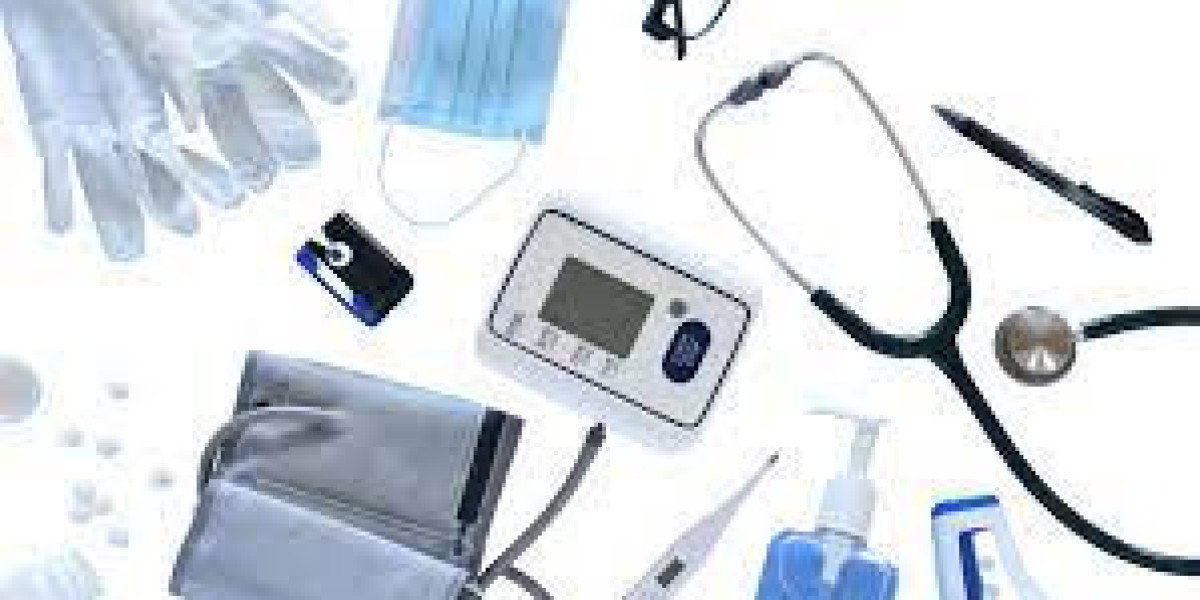India’s healthcare industry has undergone a remarkable transformation in the past decade, driven by technological innovation, infrastructure development, and the growing need for quality healthcare services. A critical part of this progress lies in the contribution of medical equipment suppliers in India, who ensure that hospitals, diagnostic centers, and clinics have access to reliable, efficient, and affordable medical devices.
From basic diagnostic tools to advanced imaging systems, these suppliers play a vital role in improving patient care and supporting the medical ecosystem. This article explores the importance, growth, and major players in the Indian medical equipment supply sector, offering insights into how this industry is shaping the future of healthcare.
Understanding the Role of Medical Equipment Suppliers
Medical equipment suppliers act as a bridge between manufacturers and healthcare providers. They provide a wide range of products that cater to hospitals, laboratories, and clinics — ensuring smooth and efficient healthcare delivery. Their offerings typically include:
Diagnostic equipment (X-ray machines, MRI scanners, ultrasound systems)
Surgical instruments and consumables
Hospital furniture and ICU setups
Laboratory analyzers and test kits
Home healthcare devices (BP monitors, glucose meters, oxygen concentrators)
By maintaining a consistent supply chain, these suppliers help healthcare professionals deliver timely and effective treatment.
The Growing Demand for Medical Equipment in India
The Indian medical device market has witnessed exponential growth due to rising healthcare needs, medical tourism, and government initiatives such as “Make in India” and Ayushman Bharat. The demand is particularly strong for diagnostic imaging, surgical tools, and patient monitoring systems.
Key drivers of this growth include:
Urbanization and lifestyle changes leading to increased chronic diseases.
Government funding for new hospitals and healthcare facilities.
Technological innovation, including AI, IoT, and telemedicine.
Expansion of private healthcare providers in tier-2 and tier-3 cities.
According to recent reports, India’s medical device market is expected to exceed USD 50 billion by 2030, positioning the country as one of the top global healthcare suppliers.
Categories of Medical Equipment Suppliers in India
Medical equipment suppliers in India can be broadly categorized based on their specialization:
a) Diagnostic Equipment Suppliers
These suppliers provide advanced diagnostic systems like CT scanners, digital X-rays, and ultrasound machines. Leading names include GE Healthcare India, Siemens Healthineers, and Philips India.
b) Surgical Equipment Suppliers
Focused on providing precision instruments used in operating rooms, these suppliers serve hospitals and clinics. Companies like B. Braun, Stryker India, and Meril Life Sciences are key players.
c) Laboratory Equipment Suppliers
They supply analyzers, microscopes, and lab consumables essential for testing and research. Brands like Agappe Diagnostics, Transasia Bio-Medicals, and LabIndia dominate this space.
d) Hospital Furniture and ICU Equipment Providers
Suppliers such as Godrej Interio Medical, Midmark India, and HospEquip ensure hospitals are equipped with ergonomic and durable infrastructure.
e) Home Healthcare Device Suppliers
As home healthcare gains popularity, suppliers offer portable devices such as oxygen concentrators, digital thermometers, and ECG monitors from brands like Omron, BPL Medical Technologies, and Dr. Morepen.
Leading Medical Equipment Suppliers in India
Here’s a look at some of the top-performing suppliers contributing to India’s healthcare excellence:
GE Healthcare India – A pioneer in diagnostic imaging and life sciences solutions.
BPL Medical Technologies – Offers affordable and reliable equipment for hospitals and clinics.
Allengers Medical Systems Ltd. – Known for radiology, cardiology, and surgical imaging equipment.
Trivitron Healthcare – One of the largest Indian companies with global reach, offering over 25,000 products.
Siemens Healthineers India – Delivers high-quality imaging, diagnostics, and digital health solutions.
Poly Medicure Ltd. – Specializes in disposable medical devices and hospital consumables.
Meril Life Sciences – Focuses on innovative surgical and interventional products.
These companies set benchmarks in innovation, after-sales support, and product reliability.
Importance of Quality and Certification
In a sector as sensitive as healthcare, quality assurance and certification are non-negotiable. Reputed suppliers in India ensure that their products meet global standards such as:
ISO 13485 for medical device quality management
CE marking for European market compliance
US FDA approval for export credibility
BIS certification for Indian safety standards
These certifications guarantee that equipment is safe, durable, and accurate, reducing risks in patient diagnosis and treatment.
Challenges Faced by Medical Equipment Suppliers
Despite impressive growth, the industry faces several challenges:
High import dependency: Over 70% of advanced medical devices are imported.
Regulatory hurdles: Complex approval processes can delay product launches.
Price sensitivity: Indian hospitals often seek cost-effective alternatives.
After-sales service issues: Maintenance and calibration can be difficult in remote areas.
To overcome these barriers, suppliers are focusing on local manufacturing, R&D investment, and digital transformation for better customer engagement.
Government Initiatives Boosting the Sector
The Indian government has implemented several initiatives to support domestic suppliers and manufacturers:
Production Linked Incentive (PLI) Scheme – Encourages local manufacturing of high-end medical devices.
Medical Devices Park Scheme – Establishes dedicated parks for device production across states.
100% FDI approval in the medical devices sector – Attracts foreign investment and joint ventures.
Ayushman Bharat Program – Expands healthcare access and creates demand for more equipment.
These initiatives are helping India move towards becoming a global medical device hub.
How to Choose the Right Medical Equipment Supplier
Selecting a reliable supplier is crucial for maintaining healthcare quality. Here are some factors to consider:
Reputation and experience in the industry.
Product certifications and compliance with safety standards.
After-sales support including maintenance and training.
Pricing and warranty terms.
Availability of spare parts and upgrades.
Working with an accredited supplier ensures long-term reliability and better patient outcomes.
The Future of Medical Equipment Supply in India
The future of medical equipment suppliers in India looks bright. With the integration of AI, IoT, and robotics, medical devices are becoming smarter and more efficient. Telemedicine and remote diagnostics will further increase demand for portable, connected devices.
As India continues to invest in healthcare infrastructure and innovation, the country is set to emerge as a global leader in medical equipment manufacturing and supply.
FAQs
What are the major types of medical equipment supplied in India?
Medical equipment suppliers provide diagnostic machines, surgical instruments, hospital furniture, laboratory tools, and home healthcare devices.
Are most medical devices in India imported or locally made?
Currently, around 70% of advanced medical devices are imported, but local production is growing under the “Make in India” initiative.
How can hospitals ensure they buy quality equipment?
Hospitals should verify supplier credentials, check certifications (like ISO or CE), and ensure post-sales support and maintenance.
What are the leading medical equipment brands in India?
Top brands include GE Healthcare, Philips India, BPL Medical Technologies, Trivitron Healthcare, and Meril Life Sciences.
How is the government supporting the medical equipment industry?
Through PLI schemes, FDI approvals, and medical device parks, the government is encouraging innovation and domestic manufacturing.
Conclusion
The landscape of medical equipment suppliers in India is evolving rapidly, driven by innovation, policy reforms, and increasing healthcare demands. These suppliers are not just vendors—they are essential partners in the nation’s mission to deliver advanced, affordable, and accessible healthcare to every citizen.
As the market continues to expand, collaboration between suppliers, manufacturers, and healthcare institutions will shape a healthier and technologically empowered future for India.






